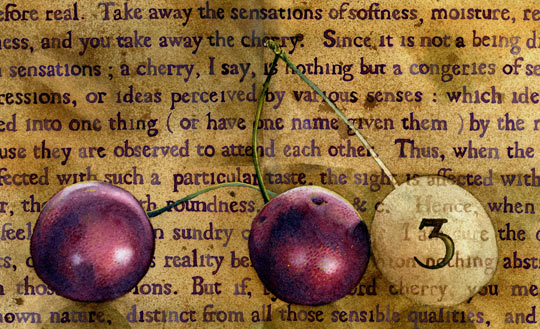
Bishop Berkeley’s Cherry
Watercolor, 2006
Cherries have quite a few interesting literary associations. Bishop George Berkeley (1685-1753) chose the fruit to illustrate his philosophical conviction that objects can only be known through our direct perception of their sensory attributes:
I see this cherry, I feel it, I taste it : and I am sure nothing cannot be seen, or felt, or tasted : it is therefore real. Take away the sensations of softness, moisture, redness, tartness, and you take away the cherry.
Thus, inanimate things only exist while they are being perceived – in the mind of the observer. This idea has obvious implications for both art, in which the senses of the observer are manipulated to create a perception of something which is not there; and science, which necessarily proceeds through empirical observation, but recognizes that the subjectivity of the observer is limiting.
